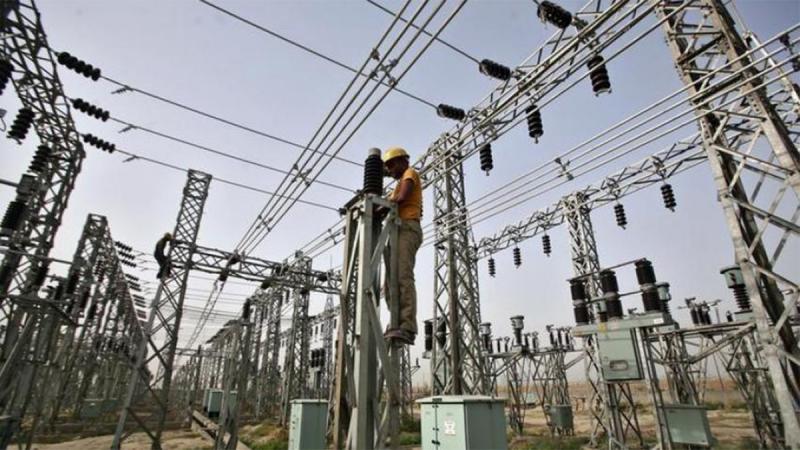 Impractical plans on import of electricity from neighboring India coupled with construction of new plants inside Bangladesh pose risk of economic loss in the long run, analysts said.
Impractical plans on import of electricity from neighboring India coupled with construction of new plants inside Bangladesh pose risk of economic loss in the long run, analysts said.
Bangladesh also cannot suspend its power import as per its agreements with India, which analysts describe as a ‘jugglery of figures’.
An official at Bangladesh Power Development Board (BPDB) explained how the whole process works for Bangladesh.
The capacity charge was fixed at $0.3455 per kilowatt for the first 500 megawatt (MW) of electricity while it was set at $0.3685 per kilowatt for fuel.
According to agreements between Bangladesh and Indian, the buyer country will import electricity as per its demand.
In that case, if Bangladesh imports 300 MW electricity, it will have to pay what the official said a ‘capacity charge’ of 500 MW.
Quite the opposite, if India fails to supply the electricity it will charge proportionately, according to the official, who preferred to go unnamed.
Bangladesh power demand goes up to 13000 MW in the summer while it drops to between 6000 and 7000MW in the winter.
Director General (DG) of Power Cell Mohammad Hossain said, “In addition to imported electricity, all power plants including private-run local ones go on operation in the summer as demand of electricity goes up.”
“In the winter, demand goes down. In that case, electricity from private power plants is used to utilise the capacity charge. Then comes the imported electricity from India and finally government power plant goes on operation.”
If the demand falls, operation of state-owned power plants is suspended first.
“Operation at the state-owned plant will remain suspended as long as number of private power as well as import of power from India will continue to rise.”
“If the scenario continues, state-owned plants will no longer be required to go on function during the winter in future causing loss to the economy,” said Hossain.
According to the Hossain, exporting electricity to India during the winter is the lone solution to this crisis.
On Sep 25, Dhaka proposed to export power to its neighbouring country in addition to pitching the idea of a joint venture power plant in India during a meeting of Bangladesh-India Joint Steering Committee on power.
At present, Bangladesh imports 160 MW of electricity from Indian state of Tripura on redial method that allows the buyer country to pay as it goes.
Bangladesh, however, imports 1,000 MW of electricity from Behrampore in the Indian state of West Bengal on the agreement of paying capacity charge. In most cases, Bangladesh takes less than that of it agreed upon.
Citing lack of proper planning for the power sector, energy expert Shamsul Alam said, “We produce less electricity against our existing capacity that raises the cost.”
If the government decides not to increase the term of rental plants and could pay the capacity charge per kilowatt, it would somewhat be profitable, said Alam, who is the energy advisor to rights body Consumers Association of Bangladesh (CAB).
Alam also recommended a revision in the government plan on electricity.
“Demand of power should be met first from the state-owned plants, then private plants and only after that import,” he said.
Alam said that power transmission has become costly due to the policy, which according to him aims at allowing the private sector to make money.
The government has lost an opportunity to compromise on the capacity charges of electricity in its agreements with India, he said before adding: “For now, we depend on imported power, so we need to draw plans practically.”
 Business
Business
41392 hour(s) 24 minute(s) ago ;
Morning 11:18 ; Monday ; Jul 07, 2025
‘Power import poses risk of economic loss in long-run’
Send
Shanchita Shitu
Published : 07:45, Oct 03, 2018 | Updated : 12:37, Oct 04, 2018
Published : 07:45, Oct 03, 2018 | Updated : 12:37, Oct 04, 2018
0 ...0 ...
/hb/
Topics: Top StoriesExclusive
- KOICA donates medical supplies to BSMMU
- 5 more flights to take back British nationals to London
- Covid19: Rajarbagh, Mohammadpur worst affected
- Momen joins UN solidarity song over COVID-19 combat
- Covid-19: OIC to hold special meeting
- WFP begins food distribution in Cox’s Bazar
- WFP begins food distribution in Cox’s Bazar
- 290 return home to Australia
- Third charter flight for US citizens to return home
- Dhaka proposes to postpone D8 Summit
Unauthorized use of news, image, information, etc published by Bangla Tribune is punishable by copyright law. Appropriate legal steps will be taken by the management against any person or body that infringes those laws.
Bangla Tribune is one of the most revered online newspapers in Bangladesh, due to its reputation of neutral coverage and incisive analysis.
F R Tower, 8/C Panthapath, Shukrabad, Dhaka-1207 | Phone: 58151324; 58151326, Fax: 58151329 | Mob: 01730794527, 01730794528






